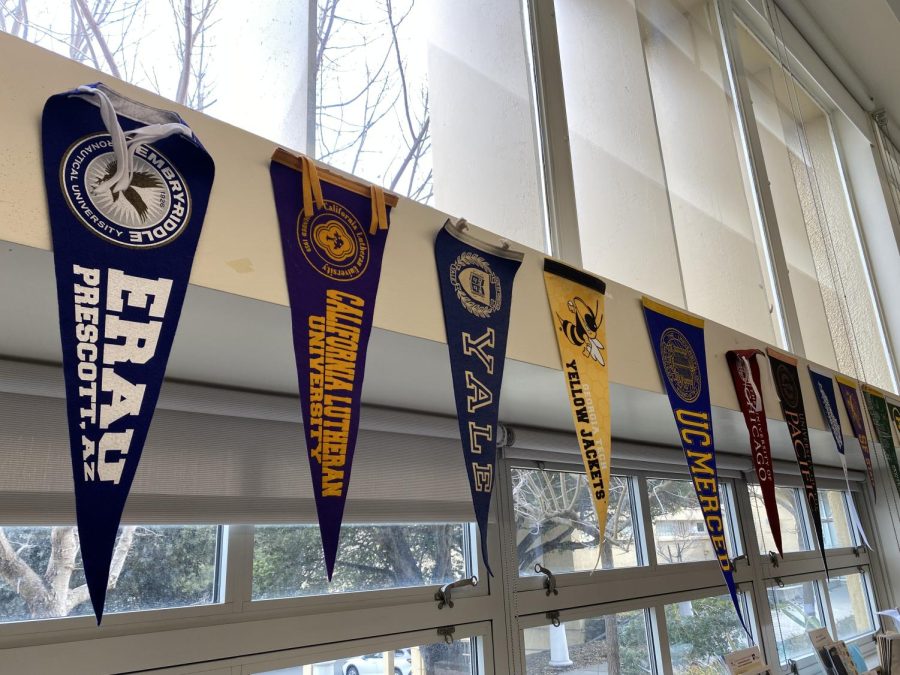Colleges are withdrawing from the U.S. News & World Report ranking system, expressing concerns about the rankings’ validity and outcomes.
The publisher issues several university rankings, from medical schools to undergraduate colleges, and many prospective students across the country rely on these listings when deciding which school to attend. It provides information such as SAT score range, annual cost, faculty-to-student ratio, and other factors one may consider in their college search.
However, many top schools are requesting to not be ranked by the U.S. News & World Report. For example, Stanford School of Medicine has withdrawn from the medical school rankings, saying that it doesn’t provide the full picture of a good learning environment.
UC Berkeley Law has also withdrawn from the law school rankings, saying that the rankings penalize schools that have graduates pursuing public interest careers. In late February, Colorado College announced that it would not participate in the college rankings either.
The U.S. News and World Report have stated that 40% of the overall ranking is based on outcomes like graduation rates, student debt, and social mobility.
There are a few issues that colleges have cited when removing their participation from the rankings. The outcome-based rankings can encourage lower-ranked schools to accept more affluent students so that the average student loan debt is lower. Additionally, schools with a high percentage of graduates working in public service will be ranked lower due to lower pay.
The outcomes of going to a certain school aren’t always the most important thing to prospective college students. Different people are looking to get different things out of the college experience.
“When I started my college-searching journey, I think I paid more attention to the rankings, but I quickly realized how it is often hard to find the ranking that really pertains to you. There is a lot more to a school than its number in comparison to others. There are always times when the ‘best school’ isn’t the best school for everyone because all students are looking for something different from their college experience,” said Emily Mannion, a Carlmont senior.
The idea of fit can be subjective and often difficult to assess through definitive rankings. To help combat this, the U.S. News & World Report has recently acquired CollegeAdvisor.com, which is supposed to help with individual college fit.
Carlmont students have access to a similar resource called Naviance. The program helps match the student’s grade point average (GPA) and test scores to the requirements of different colleges in tandem with characteristics the student is looking for, such as faculty-to-student ratio, school size, and school location. Many students find this resource helpful.
“I think the U.S. News & World Report ranking tools are often less effective than the Naviance tools because of the supposed objectivity they provide. There is so much subjectivity in choosing schools because everyone is so different. Blanket rankings don’t seem like they would really apply to every prospective student, nor do they encapsulate the entirety of the college experience,” Mannion said.
The Carlmont College and Career Center also follows a similar policy– in fact, they don’t use the U.S. News & World Report rankings at all.
“I do not use ranking at all. The best college for each student depends on the college fit, not the college ranking,” said Nina Rasor, Carlmont’s College and Career assistant.
Another resource that is often used supplementally with the college rankings is in-person tours.
“To me, in-person tours make a bigger difference because there’s more to college than just how good it looks. In order for you to really thrive, a lot of other factors have to be taken into account. Tour guides have a huge impact on viewpoint because different people have different priorities when going into college, and their own values are going to be reflected in their tours. If there’s a clash in values between you and the tour guide, it will seem like the clash is between you and the college since the guide is acting as the face of the college,” said Alex Makeev, a Carlmont junior.
In-person tours are helpful, but they also only give the perspective of one or two students. Clashing with a tour guide could lead to a negative opinion of the school they’re representing.
Another key limitation of the ranking system is that it doesn’t represent the experience of different majors– only average starting income.
“The rankings stop being applicable when you’re looking at individual majors since different colleges have different specialization opportunities,” Makeev said.
Some majors are impacted at certain schools, meaning it is difficult to get in, and you may need to take more than four years of school to complete your required classes. The resources allocated to each major may be different as well.
Overall, the U.S. News & World Report college rankings can be useful in researching potential schools but most likely will not give the full picture of the college experience at any given school.






















